Archive for 2020
European Challenger Bank Revolut Launches in US
March 25, 2020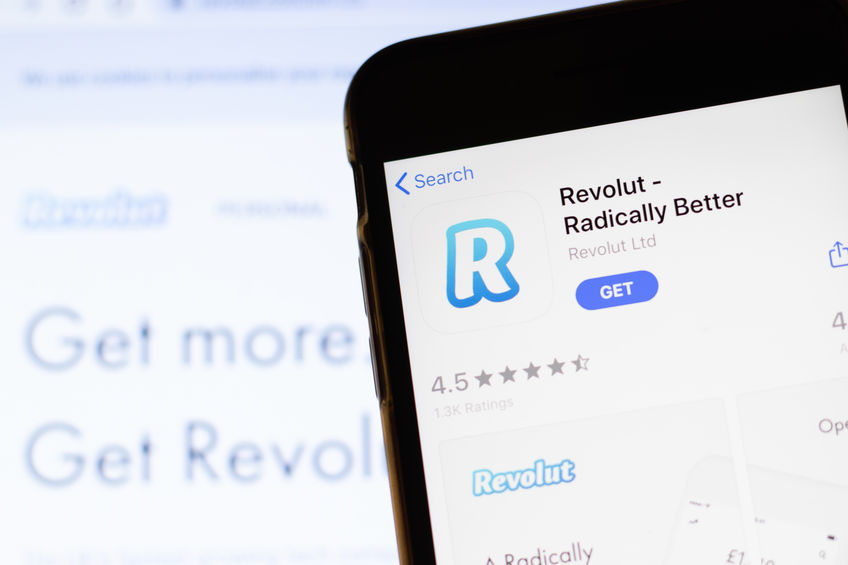 Yesterday Revolut, the London-based digital-only bank, announced the public launch of its app in the United States. The news came as a surprise to the thousands of potential American customers who signed up to the company’s waiting list with no details of when exactly to expect the bank’s arrival.
Yesterday Revolut, the London-based digital-only bank, announced the public launch of its app in the United States. The news came as a surprise to the thousands of potential American customers who signed up to the company’s waiting list with no details of when exactly to expect the bank’s arrival.
Founded in 2015 and valued at $5.5 billion, Revolut offers customers a debit card and a bank account controlled solely through its app; no brick-and-mortar branches being all the more timely during the coronavirus pandemic. The challenger bank joins its competitors, Monzo, N26, and Chime, in offering more sleeker and streamlined experiences compared to legacy banks.
While the European version of the app allows users to invest in stocks, trade cryptocurrencies, and buy insurance, the US edition will launch with limited capabilities, instead planning to roll out such features when they are available. The reason for this likely being that Revolut has yet to agree to deals with third parties to provide these features through partnerships. However, American Revolut users will be able to receive their salary two days in advance if they share their Revolut bank details with their employer, an ability that has yet to be launched in Europe. As well as this, the US version still offers the expense management, payment alerts, and currency exchange features that are in the European app.
Much like other fintechs who dabble in American banking, Revolut has circumvented the issue of acquiring a banking charter by instead partnering with a domestic bank, such as the New York-based Metropolitan Commercial Bank in this case. As such, accounts are FDIC-insured for up to $250,000.
“As the cost of living increases disproportionately to people’s take-home salaries, now more than ever, people need to know exactly what is coming in and out of their account. They should have the tools to help them manage their money more conveniently and accurately,” Revolut Founder and CEO Nik Storonsky said in a statement. “When spending or transferring money overseas, most people are unaware of the hidden fees that banks are charging them. The world is becoming more connected, and financial services should be supporting this notion, not hindering it.”
Lists of States Where Non-Essential Businesses Have Been Ordered to Close
March 24, 2020Make sure you know about individual state orders that could affect a small business’s ability to operate. Below is a list of states and regions that have ordered some or all non-essential businesses to close. This list may be incomplete and the details of each state’s orders could change and may have changed since this was posted. Do you own due diligence:
- Alabama – Jefferson County
- California
- Colorado – Must reduce workforce by 50%
- Connecticut
- Delaware
- Florida – multiple counties
- Georgia – bars and restaurants
- Hawaii – Maui and Honolulu
- Idaho – Blaine County
- Illinois
- Indiana
- Kansas – multiple counties
- Kentucky
- Louisiana
- Maine – Bars and restaurants
- Maryland
- Massachusetts
- Michigan
- Minnesota
- Mississippi – Certain cities
- Missouri – Certain areas in and around Kansas City
- Montana
- Nevada
- New Jersey
- New Mexico
- New York
- North Carolina
- Ohio
- Oregon
- Pennsylvania
- Rhode Island
- Tennessee – Multiple cities and counties
- Texas – Multiple cities and counties
- Vermont
- Virginia
- Washington
- West Virginia
- Wisconsin
- Wyoming – Multiple counties
New York Supreme Court Grinds to a Halt
March 24, 2020Amid the Coronavirus pandemic, the New York Unified Court System has modified its protocols. Among the limitations, the Supreme Court will only be handling “essential applications as the court may allow.” Examples offered were Mental Hygiene Law Applications, civil commitments, and guardianships. All other matters and conferences are being adjourned to future dates.
These temporary rules went into effect on March 17th and will continue until further notice.
Knight Capital’s Intangibles As Reported Through Ready Capital’s Year-End Earnings
March 21, 2020Last year, Ready Capital Corporation (NYSE: RC) acquired small business funding provider Knight Capital.
RC’s year-end earnings provided some additional insight into the state of Knight Capital at the time it was acquired. This included balance sheet figures that recorded $48.4M in assets ($39.5M of which were purchased future receivables) and $31.8M in liabilities.
Among Knight’s intangible assets were a valuation of $880,000 assigned to the Knight Capital trade name, $1.2M assigned to the value of Knight’s broker network, and $3.8M assigned to the company’s internally developed software.
Goodwill of $11.2 million was recognized as the consideration paid exceeded the fair value of the net assets acquired.
View the full year-end financial statements by Ready Capital Corporation here
Online Lenders Ask Congress For Capital For Help and To Help
March 20, 2020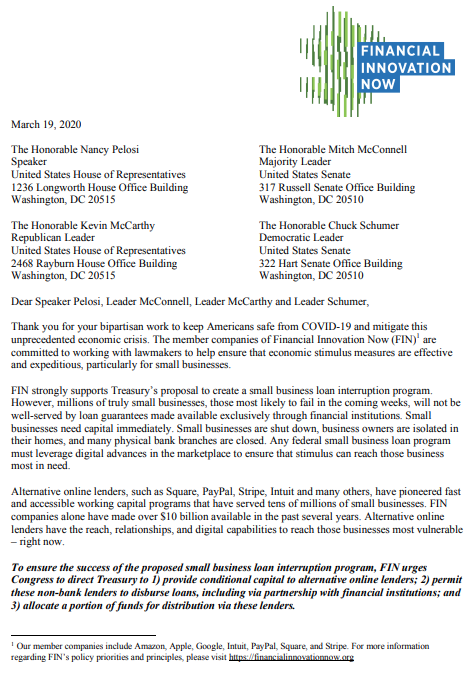 Members of Financial Innovation Now (FIN) have called on senior members of Congress to play a role in supporting small businesses with capital support and by loan distribution. Among their suggestions are:
Members of Financial Innovation Now (FIN) have called on senior members of Congress to play a role in supporting small businesses with capital support and by loan distribution. Among their suggestions are:
- To direct Treasury to provide conditional capital to alternative lenders
- Permit these non-bank lenders to disburse loans, including via partnership with financial institutions
- Allocate a portion of funds for distribution via these lenders
FIN’s members include Amazon, Apple, Google, Intuit, PayPal, Square, and Stripe.
The organization also said:
An emergency Treasury facility will get funding to small businesses in a timely manner. FIN welcomes Congressional efforts to dramatically streamline Small Business Administration loans and include alternative lenders in this process as well.
Canadian Lenders Association Announces Creation of Covid-19 Working Group
March 20, 2020 The Canadian Lenders Association has announced its establishment of a covid-19 working group to support its members’ response against the coronavirus. The group will act as an advisory committee and resource for CLA members, while also serving as a lobbyist group to various government entities.
The Canadian Lenders Association has announced its establishment of a covid-19 working group to support its members’ response against the coronavirus. The group will act as an advisory committee and resource for CLA members, while also serving as a lobbyist group to various government entities.
“We presently are in an unprecedented period in Canadian business,” CLA President Gary Schwartz said in a statement. “In the weeks and months ahead, CLA members will have an important role to play in supporting small business and in providing much needed credit to consumers across Canada. The goal of this initiative is to engage with and advocate on behalf of all stakeholders across the innovative lending ecosystem to help mitigate the disruption that covid-19 create in Canada.”
The working group will engage Canadian policy makers on key issues relating to small business lenders and small businesses. In a call, CLA Board Member and Merchant Growth Partner CEO David Gens said that “there’s a lot that governments can do to bridge businesses through this, so that once this virus is over, life resembles, as much as possible, what it looked like pre-virus … I don’t think we have seen enough yet in terms of the government response as it relates specifically to mom and pop small businesses … And I think that those businesses, those local storefronts really do make up the fabric of communities.”
BFS Capital Hires Peter Ng as CRO
March 20, 2020 Last week BFS Capital announced that it has appointed Peter Ng as Chief Revenue Officer. Coming from BlackBerry, where he served as Senior Director of Global Alliances and Business Development, Ng will be responsible for leading all revenue-related functions as well as overseeing the development of partnerships.
Last week BFS Capital announced that it has appointed Peter Ng as Chief Revenue Officer. Coming from BlackBerry, where he served as Senior Director of Global Alliances and Business Development, Ng will be responsible for leading all revenue-related functions as well as overseeing the development of partnerships.
“I’ve had the privilege of working with Peter over the past few years and have always been impressed with his unique ability to drive business growth through new, innovative and diverse channels,” CEO Mark Ruddock said. “BFS continues to develop our executive talent pool as we pursue our mission of reimagining small business financial services, and we are particularly thrilled to have him join our leadership team.”
At BlackBerry, Ng lead the company’s global Independent Software Vendor partnerships program. Here Ng oversaw the creation of new partnerships and revenue streams with the launch of BlackBerry’s ISV Affiliate program as well as the addition of over 120 partners in less than three years. Ng was also instrumental in starting up the BlackBerry World mobile app store. He joined BlackBerry after the Canadian multinational acquired Viigo, where Ng was Vice President of Sales and Services.
“I’m excited to accept the role as Chief Revenue Officer,” Ng said in a statement. “This will be the third opportunity I’ve had to work with Mark Ruddock, who is truly a transformational leader. Having built an app ecosystem from scratch, I see a similar opportunity to create one for the small business owner. I’m looking forward to bringing my extensive global partnership experience and passion for startups to BFS Capital to help grow and diversify sales channels. The BFS Capital platform, combined with a robust partner ecosystem, will unlock exciting new financial products and services for underserved small businesses and drive an unparalleled customer experience.”
The Pandemic, The Economy, and The Presidential Race
March 20, 2020Note from the Editor: In early February, I asked one of our regular journalists, Paul Sweeney, to look into the economy and the presidential race to size up the coming election season. As he was wrapping up his interviews over the span of a month, things took a startling turn, and COVID-19 came to the forefront and changed everything. This story is an amalgamation of reporting that started one way and quickly morphed into another. In light of how fast the situation is changing, we are publishing it now rather than waiting until early April to release it in print.
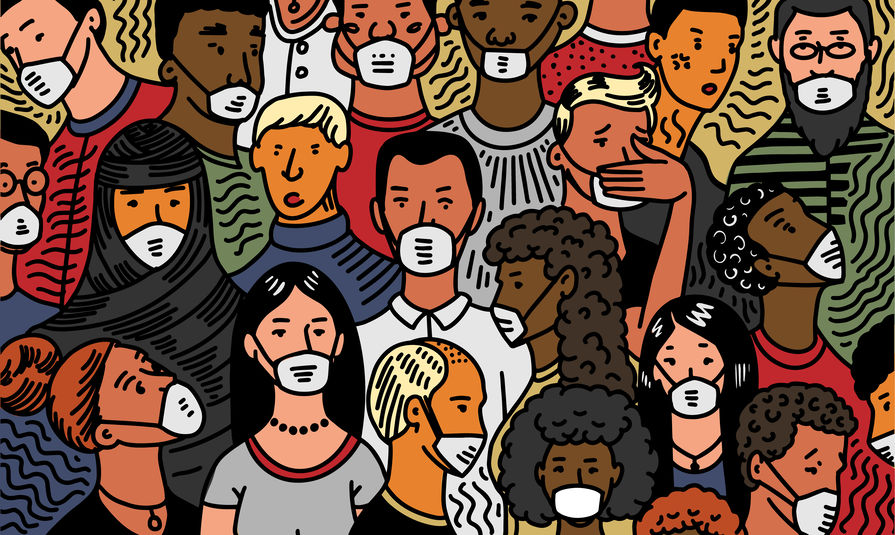
Chris Hurn, who heads an Orlando-area financial firm in Florida that specializes in small business lending, says he is witnessing fear and desperation among business owners whose stores, shops and enterprises have been thrown into a tailspin by the coronavirus pandemic.
“We’ve been overwhelmed with telephone calls and e-mails,” says Hurn, chief executive at Fountainhead Commercial Capital, a non-bank Small Business Administration lender which boasts more than $250 million in originations last year. “I’ve fielded over 300 inquiries from borrowers about these loans in just the last few days,” he added. “People are telling me that they’re being harmed and don’t know how they’ll make payroll. The SBA needs to act.”
What Hurn is experiencing in Florida is not just an isolated incident. Thousands of small businesses are under siege nationwide as Americans’ have gone into isolation in response to the pandemic, helping precipitate a full-blown economic crisis. As of March 17, the coronavirus – also known as Covid-19 – had leapfrogged across the globe since appearing in China in December, 2019, infecting people in 100 countries. There are now some 272,000 confirmed Covid-19 cases worldwide and close to 11,300 deaths, according to data compiled by scientists at Johns Hopkins University in Baltimore.
In the U.S., the number of cases has cleared 19,000 as of March 20, the death toll has climbed above 230, and coronavirus cases have been recorded in all 50 states. The Center for Disease Control reports that the number of cases are growing at 25-30% per day. But experts warn that, because of a lack of testing, the actual number of cases is certainly higher.
 The outbreak is drawing comparisons to the worldwide influenza pandemic of 1918. Popularly known as the “Spanish Flu,” that virus may have claimed as many as 100 million lives, according to estimates by the World Health Organization. Medical officials say that persons 70 and older and those with underlying medical conditions, such as a weakened immune system, are most at risk in the current pandemic.
The outbreak is drawing comparisons to the worldwide influenza pandemic of 1918. Popularly known as the “Spanish Flu,” that virus may have claimed as many as 100 million lives, according to estimates by the World Health Organization. Medical officials say that persons 70 and older and those with underlying medical conditions, such as a weakened immune system, are most at risk in the current pandemic.
“What makes this disease so lethal,” says Rachel Scott, a family physician in Austin, Texas and the author of “Muscle and Blood,” a pathbreaking study of occupational diseases, “is that people in the vulnerable population who come down with the virus are prone to contract severe acute respiratory distress syndrome. In ARDS, the virus destroys the sacs in the lungs, preventing oxygen from being delivered into the blood stream. By the time people with severe ARDS are hospitalized and treated with a ventilator, it may already be too late.”
To blunt the accelerated pace of contagion, governors and mayors are putting restrictions on citizens by curbing gatherings and monitoring interactions. Governors in 44 states have forced restaurants and bars to close shop in an unprecedented regulation of U.S. citizens. Meanwhile, millions of Americans self-quarantined and self-isolated and re-examined how they interact socially, commercially and professionally. Increasingly draconian controls to moderate the trajectory of the outbreak are not only turning cityscapes into ghost towns from coast-to-coast but throwing a giant monkey wrench into the U.S. economy.
Treasury Secretary Steven Mnuchin has reportedly warned Congressional leaders that the unemployment rate could spike to 20%.
Former Labor Secretary Robert Reich has gone Mnuchin one better amid reports that 1.2 Americans had filed for unemployment insurance. In an interview on MSNBC Thursday, Reich said he feared that the unemployment rate is likely to hit that 20% mark in the next two weeks. “Eighty percent of Americans are living paycheck to paycheck,” he declared ominously. “We’re in a national emergency.”
The pandemic and the ensuing economic crisis is also casting a giant shadow over the 2020 presidential election. “It’s a black swan event that wasn’t anticipated by any of the candidates, and the reverberations for the election are going to be huge,” said Richard Murray, a political scientist and elections expert at the University of Houston.
For the past 50 years, political analysts have generally agreed, the condition of the U.S. economy was a key predictor – if not the key predictor – to the outcome of presidential elections. President Jimmy Carter, for example, had the bad fortune to preside over a problematic economy marked by oil-price shocks and energy shortages, mile-long queues at gasoline stations, and sky-high interest rates. There was even a new word — “stagflation” – coined for the phenomenon of stagnant growth and runaway inflation, recalls David Prindle, a government professor and expert on voting behavior at the University of Texas at Austin.
There were, of course, additional negative complications to Carter’s presidency. Most notable was the “Hostage Crisis” in which Iranian students attacked the U.S. Embassy in Teheran in the fall of 1979, held 44 American diplomats and aides captive for more than a year, and made Carter look hapless and helpless. Nonetheless, Ronald Reagan, a former governor of California and longtime matinee idol, hammered Carter mercilessly on the economy, demanding: “Are you better off than you were four years ago?”
Answering that question sent Carter packing to his Georgia peanut business. “In 1980, as in every election, there were multiple causes,” says Prindle, “but the deciding factor was the economy.”
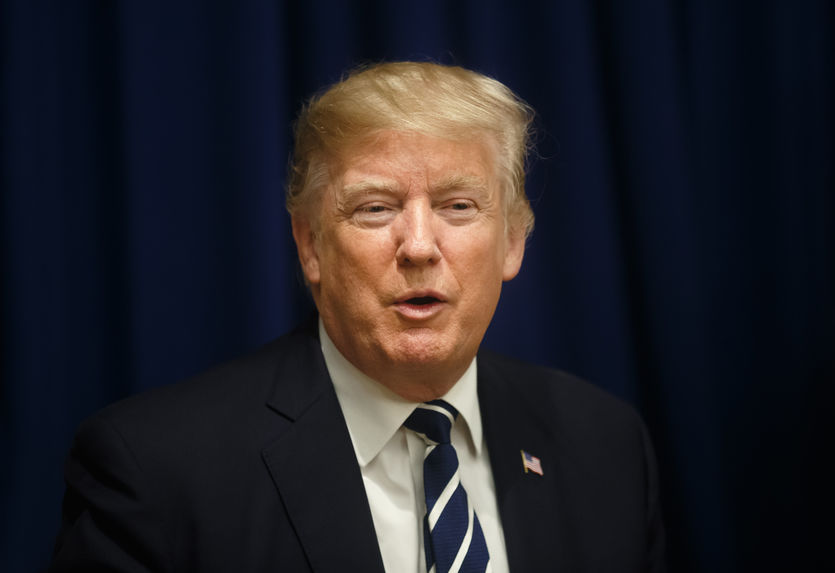 A healthy economy can serve as a mighty bulwark against opponents in a president’s bid for a second term. In the mid-1990s, an expanding economy and relentlessly buoyant stock prices – a Dow Jones Industrial Average so robust in the mid-1990’s that Federal Reserve chairman Alan Greenspan famously admonished investors for their “irrational exuberance” – allowed Bill Clinton to sail to re-election. (The good times also buffered Clinton during the ensuing sex scandal involving White House intern Monica Lewinsky.)
A healthy economy can serve as a mighty bulwark against opponents in a president’s bid for a second term. In the mid-1990s, an expanding economy and relentlessly buoyant stock prices – a Dow Jones Industrial Average so robust in the mid-1990’s that Federal Reserve chairman Alan Greenspan famously admonished investors for their “irrational exuberance” – allowed Bill Clinton to sail to re-election. (The good times also buffered Clinton during the ensuing sex scandal involving White House intern Monica Lewinsky.)
As the election year of 2020 dawned, a decently performing economy seemed to be serving President Donald Trump’s cause. Before the World Health Organization declared the coronavirus outbreak a pandemic in early March, the U.S. economy was coming off 10 full years of job growth and the unemployment rate had sunk to 3.5 percent, its lowest level in 50 years. Wages were also rising by nearly 4 percent per annum, noted Aparna Mathur, a labor economist at the business-backed American Enterprise Institute in Washington, D.C. “The economy is not spectacular,” she said, “but everything is moving in the right direction.”
Since then, however, the economy has been slammed as an alarmed country reacted to the pandemic. The NBA and NHL closed down their basketball and hockey seasons. Major League Baseball called a halt to spring training. The NCAA initially declared that “March Madness” would proceed and that hoopsters would perform before empty arenas, but then it pulled the plug. Even professional golf, an outdoor sport, hung up its cleats, announcing that The Masters, played at Augusta (Ga.) National Golf Course in April and the crown jewel of professional golf, would be postponed indefinitely.
 Almost overnight, colleges and universities shut down classrooms, emptied their dorms, and opted for online coursework. Some 33 million schoolchildren in 41 states have ceased attending school. Hundreds of companies, including Amazon and Microsoft in Seattle, a city hit hard by the coronavirus, are requiring their employees to “telecommute” by working at home on their laptops.
Almost overnight, colleges and universities shut down classrooms, emptied their dorms, and opted for online coursework. Some 33 million schoolchildren in 41 states have ceased attending school. Hundreds of companies, including Amazon and Microsoft in Seattle, a city hit hard by the coronavirus, are requiring their employees to “telecommute” by working at home on their laptops.
The CDC at first advised Americans not to cluster in groups of more than 25 people, then cut that figure to 10. Americans are being prodded to engage in “social-distancing” by avoiding shaking hands and separating themselves from others by a separation of three-to-six feet from others. San Francisco has gone still further, grounding cable cars, closing down clubs and bars and restaurants and effectively putting the city on lockdown.
The city of Boston called off its iconic St. Patrick’s Day parade, Broadway theaters dimmed their lights, and Starbucks forbade customers to sit down in its coffee shops. Major events like South by Southwest, the music and cultural festival in Austin, Texas, was canceled, depriving Texas’s capital city of some $350 million in economic activity.
Jilting the festival cuts deeper than the losses to airlines, hotels, bars, restaurants, and music venues, notes Alfred Watkins, a Washington, D.C.-based economist and chairman of the Global Solutions Summit, an international consulting firm. “You have all of these people in Austin who are running events and they’re hiring caterers for sandwiches and refreshments,” he said. “You have independent contractors like videographers and photographers, sound-equipment suppliers, Uber and Lyft drivers, hairstylists, and even freelance entertainment journalists — all of whom are no longer making money. For these entrepreneurs,” he added, “losing this event is a little like retailers missing out on the Christmas season. It’s when they make their money.”
The airline, travel, leisure, and tourism industries are in free-fall. Major cruise lines suspended bookings and cut short voyages after horrific reports of coronavirus outbreaks among passengers trapped at sea, temporarily putting a $38 billion industry in dry dock.
The conventions industry, which has come to a standstill after wholesale cancellations, remains a vastly under-appreciated sector of the U.S. economy, argues George Brennan, former executive vice-president of marketing at Arlington (Va.)-based Interstate Hotels and Resorts, the world’s largest independent hotel management company.
These mass gatherings are an unheralded engine of growth, he says, packing a bigger economic wallop than they get credit for. “Conventions typically draw anywhere from 2,000 to 25,000 people,” he said. “They run 6,000 to 8,000 attendees on average, and most can only be accommodated by the top 10-20 U.S. cities, which include Chicago, San Francisco, Las Vegas, Atlanta, New Orleans and Orlando.
“Conventions are often multi-dimensional,” he added. “Attendees usually spend three to five days in town. They often shop at clothing stores and other retailers. They’ll take in sporting events or, if they’re in New York, a Broadway play. They’ll go to attractions like the San Diego Zoo, or spend an afternoon on a golf course in Florida or California.”
Conventions generate a tremendous amount of commerce and revenues for vendors and exhibitors. As an example, Brennan cites his former employer, the hospitality industry. “At hotel conventions,” he said, “you’ll see people there selling curtains and sheets, soaps and towels.”
In addition, many trade groups – Brennan cites the National Association of Civil Engineers and the American Medical Association as examples – count on the annual convention as an important component of their organization’s annual revenues. “When you pay to attend,” he says, “a significant portion goes back to the association. The convention often covers the yearly salary for a group’s staff.”
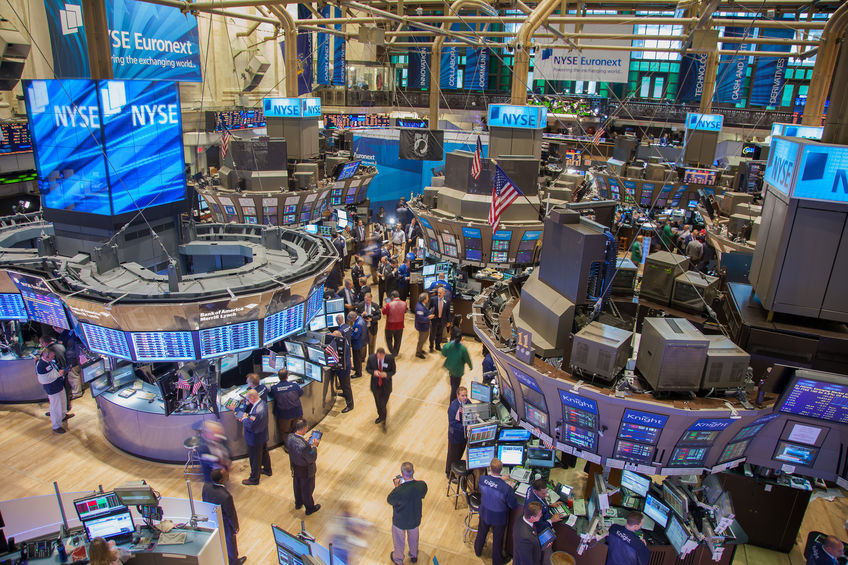 Amid the dramatic behavioral changes, the stock market registered several days of panic-selling in March, capped by a record, single-day plunge on March 16: The Dow Jones index plummeted 2,997 points, the third-worst percentage loss in history. After flirting with the level at which the Dow was reading on Inauguration Day Jan. 20, 2017, the market continued see-sawing this week, herky-jerkying between mini-rallies and skids.
Amid the dramatic behavioral changes, the stock market registered several days of panic-selling in March, capped by a record, single-day plunge on March 16: The Dow Jones index plummeted 2,997 points, the third-worst percentage loss in history. After flirting with the level at which the Dow was reading on Inauguration Day Jan. 20, 2017, the market continued see-sawing this week, herky-jerkying between mini-rallies and skids.
Hoping to prevent a coronavirus recession, the U.S. Senate adopted by an overwhelming, 90-8 bipartisan vote a $100 billion bill sent by the Democraticac-led House that expands free testing for the coronavirus, provides for paid sick leave and medical leave for some workers, and an emergency unemployment insurance and food assistance programs. The bill was signed late Wednesday night.
Meanwhile, Congress was taking up a monumental $1 trillion economic rescue plan proposed by the White House on St. Patrick’s Day (March 17) that included a bailout for the hotel and airline industries, help for small businesses, and $500 billion in direct cash payments to Americans households.
“We’re looking at sending checks to Americans immediately,” Treasury Secretary Steve Mnuchin said in a Rose Garden press conference at the White House on St. Patrick’s Day. By immediately, he added, “I’m talking about the next two weeks.”
The Trump Administration’s proposed help for small businesses has a strong supporter in Karen G. Mills, former SBA administrator and senior fellow at Harvard Business School. During her tenure in the Obama Administration, Mills was a troubleshooter in several crises including the Great Recession and Hurricane Sandy. “In a worst-case scenario with this virus contagion, getting loans to people through banks is not going to be fast enough,” she told deBanked just before the White House drew up its rescue plan. “They’ll need direct loans to people and other aid. If we lose our small business economy, it will be catastrophic.”
So how will the pandemic and the state of the economy play out politically in the November, 2020 general election between President Trump and former Vice President Joseph Biden, the presumptive Democratic nominee? The result remains shrouded in the fog of the future, of course, but the election’s contours are coming into focus.
Having seen him through numerous scandals, impeachment, and a trial in the U.S. Senate, Trump’s political and electoral following has been put to the test. Yet his backers remain unshakably loyal in a way not seen in 80 years, observed the University of Houston’s Murray. “More people are dug in now than at any time since the 1930s,” he says, as roughly 43% of the electorate is firmly lodged in Trump’s camp. “Trump’s support has been remarkably stable.”
The business community is a key demographic in the pro-Trump cohort, notes Ray Keating, chief economist at the Small Business & Entrepreneurship Council, a Washington, D.C. advocacy group claiming 100,000 members. “We have not polled our membership,” Keating says, “but when you look at the data they overwhelmingly vote Republican. We find that support for Donald Trump is clear and substantial.”
Richard Yukes, a Las Vegas-based oilman and longtime entrepreneur who votes his pocketbook, will be pulling the lever for Trump in the November election. The reason? Trump not only presided over a robust economy for the past several years, Yukes says, but the president slashed Obama-era regulations imposed on his industry. “Government regulation and bureaucratic regulation often get mishandled and misdirected by federal bureaucrats and Trump is for less regulation,” Yukes says. “I think America works best with less regulation.”
The owner and operator of oil wells in Wyoming, Yukes benefited handsomely last year when Trump’s Environmental Protection Agency relaxed rules governing methane leaks. The oilman reckons that complying with the regulations had been costing him an extra $1,500 per well each year.
No matter how well the economy has performed in the past three years, however, the pandemic economy promises to be a “game-changer,” says political scientist Murray, and history shows that voters are likely to take stern measure of the incumbent president’s performance during any a crisis.
Trump’s initial response to the coronavirus reminds Murray of Woodrow Wilson’s reaction to the Spanish Flu pandemic in 1918 while World War I was still raging. “As the U.S. was approaching climactic battles in Europe, President Wilson suppressed the news of the flu and the story didn’t get out though eventually people knew about it,” Murray says.
Wilson’s deceit hurt Democratic candidates who were battered in the 1918 midterm elections, just a few days before the November 11 armistice. Two years later, after Wilson had a stroke, the Democratic presidential candidate got crushed in the 1920 election by Warren G. Harding, a Republican senator from Ohio.
After war and influenza, Americans voted enthusiastically for Harding’s promise of “normalcy.”





























